Home › Forums › NATS NIBBLES › 7 tips from hikers to help you cope with load shedding
- This topic is empty.
Viewing 1 post (of 1 total)
-
AuthorPosts
-
2023-02-12 at 17:20 #393171
 Nat QuinnKeymaster
Nat QuinnKeymaster7 tips from hikers to help you cope with load shedding
Business Insider SA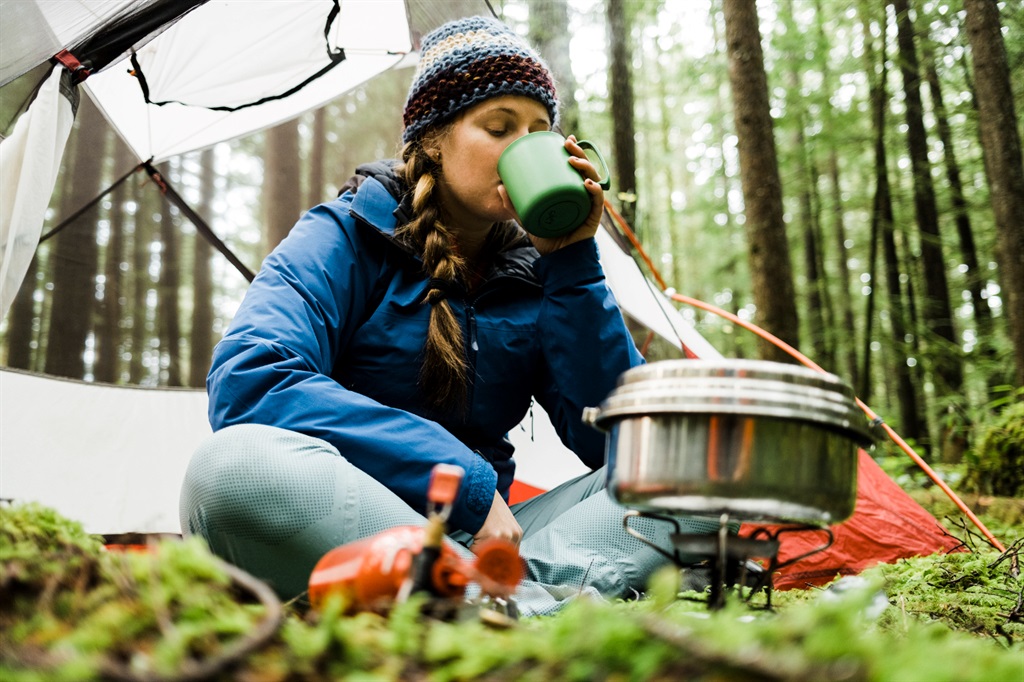 Do as hikers do and take a load off load shedding. (Getty Images)
Do as hikers do and take a load off load shedding. (Getty Images)Gear review
- Load shedding is a breeze for people who enjoy not having any electricity to begin with.
- We asked a hiker for some tips on how to beat powerlessness.
- Hiking gear can be effective in many load-shedding scenarios – and the right gear is light and inexpensive.
- For more stories, go to http://www.BusinessInsider.co.za.
Struggling to cope with load shedding? Go ask a hiker for help. Remember, we choose to spend long periods of time without electricity – and we like it.
The trick is to make life without power as comfortable as possible without needing heavy, expensive equipment.
Here are seven tips to help get you through.
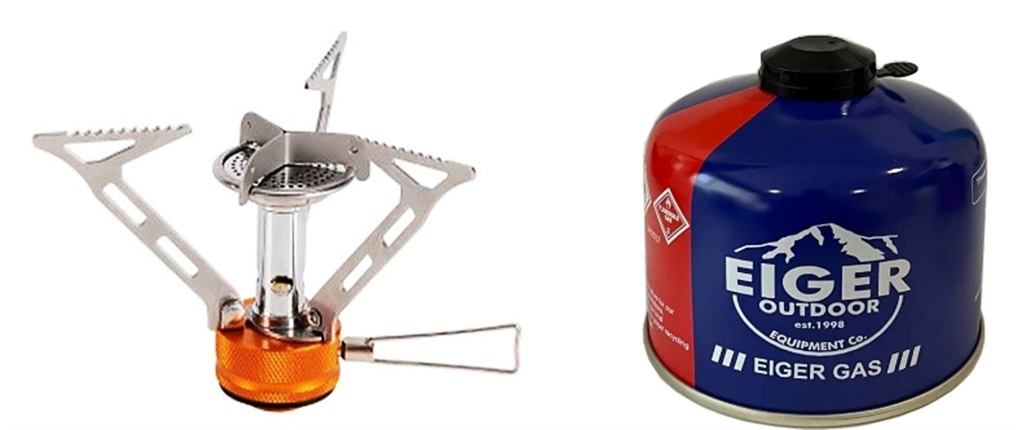 A Firemaple stove and 230 g gas canister will get you far at home and in the mountains.
A Firemaple stove and 230 g gas canister will get you far at home and in the mountains.1. Get gas
You can get a fairly decent fast and compact hiking gas stove from about R399 at most outdoor shops, such as the Firemaple 103, that packs 3000w of power and can boil you a cup of water fairly quick. All stoves in this range run on standard screw-in gas canisters, which will set you back about R99 for 230 g, and will last for about 3 to 4 hours of cooking/boiling. You might need to get a light-weight pot or two with it, but you can get them for under R100 in the shops. (If you are going hiking anyway, invest in a decent lightweight pot, like the Naturehike Skyhound energy saving pot for R599).
If you want to go for gold, get a Jetboil. They start at about R1,500 so you have to really, want it, but trust me, it is life-changing and very low on fuel.
If you have more time to cook and want a more stable surface, go for a camping stove. A single burner retails for R399, and the gas canisters are easily available for about R35 to R45. They work well enough but are much slower than the hiking stoves and you’ll end up with a stack of empty canisters.
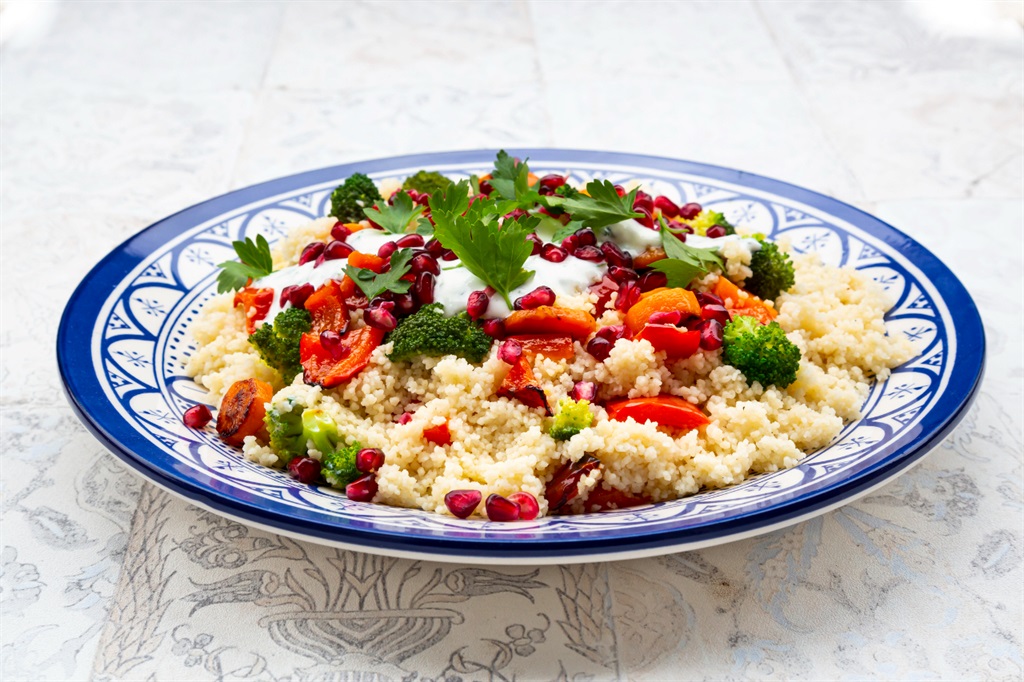 Couscous makes good hiking and loadshedding food. (Getty Images)
Couscous makes good hiking and loadshedding food. (Getty Images)2. Keep starches handy that need little to no energy to cook
It’s much easier to make a load shedding meal in summer when a salad will suffice, but if you feel like something warm and comforting and want to save your gas, eat like a hiker who doesn’t have money for that fancy freeze-dried stuff.
Ask any hiker what their staple starch is and 9 out of 10 will say couscous. All you have to do, is add hot water and a splash of olive oil or lump of butter. While it fluffs up, you can stir fry something on your gas stove to have with it, or pre-make and keep your sauces in the fridge. Click here for a few recipe ideas.
If you want a pasta dish, put your pasta in a flask or any suitable container and cover with boiling water. It will rehydrate in about 10 minutes. (If you use tap water, it will take about 2 hours.) Get your sauce going and add the rehydrated pasta to cook through.
Rice needs to soak at least overnight and the cooking time is not reduced by much. Consider forking out the dough and buy heat and eat rice from Woolies and Checkers.
Egg noodles cook in minutes and go great with any sauce from curries to stews.
(2-minute-noodles and instant mash are considered last resorts.)
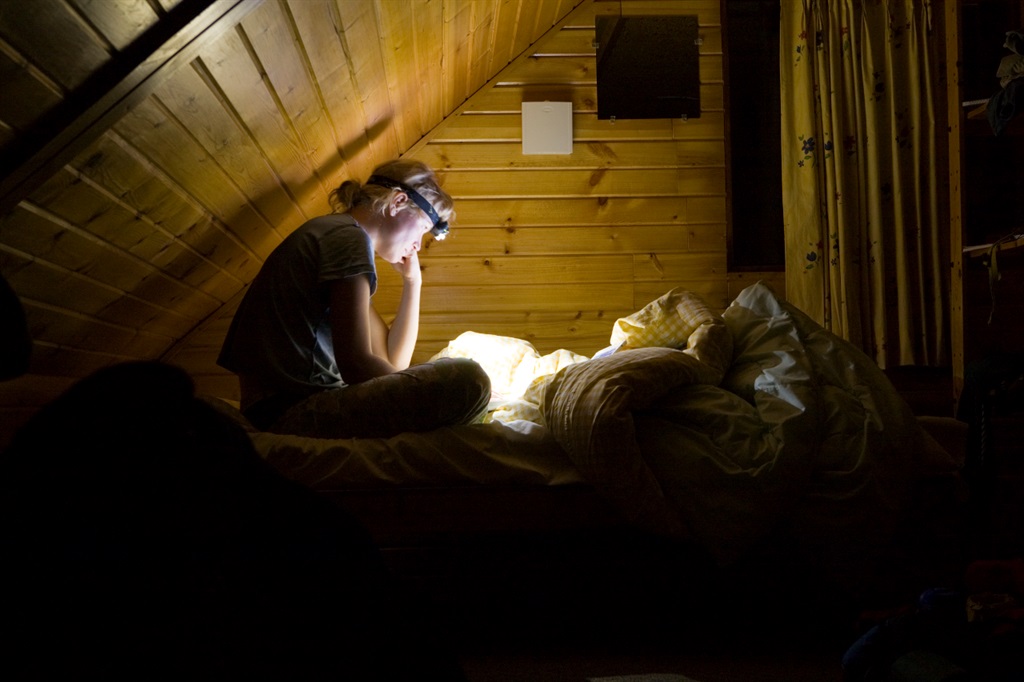 You can’t get through life without a good headtorch. (Heath Korvola/Getty Images)
You can’t get through life without a good headtorch. (Heath Korvola/Getty Images)3. A lamp on the head is better than one in the hand
Everyone should own a headlamp anyway. They are great for any emergencies, such as changing a tyre or finding a lost pet in the dark, because they leave your hands free. You can get all your cooking and cleaning done, and then read your book and drink tea by the light of your head torch.
If you are going to use it indoors, you won’t need massive amounts of lumens, so you can get a good quality 200-lumen lamp with your groceries for about R180 for home use, or go for 450 lumen for under R400 if you want to use it outdoors as well. (Don’t buy the ultra cheapies, they really don’t last.)
4. Let the sun charge you
Solar USB chargers come in a very wide range of price, quality and lifespan. You can get a simple cheapie with a tiny flashlight for under R200, but don’t bother. Spend a little more and get something sturdy with a decent LED light for a proper 2-in-1 experience.
I got a solid 1,5000mAh D-808 for R350 that goes along on all overnight hikes and is a load shedding lifesaver. The LED is bright enough to light up an entire room or camp, and you can charge two devices at the same time. It does charge well enough on solar, but just keep in mind that it is a slow process and you need a good couple of hours of direct sunlight to get it fully charged.
If you have about R3,000 to spend, go for something that will last longer, charges faster on solar, and gives you more charges, like the Tactical Extreme Solar Kit.
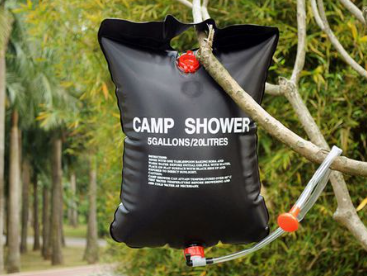 A solar shower is handy for loadshedding, but will save you money on the long run too.
A solar shower is handy for loadshedding, but will save you money on the long run too.5. Never have a cold shower
A solar shower is one super simple and super useful invention. It is just a black plastic bag with a pipe and small shower head. They usually hold about 20 litres of water and you can get one for around R170 online or at outdoor shops. Fill it up with as much water as you need for your shower and leave it in the sun to heat up if you have time, or if you are in a rush you can boil water on your hiking stove, add enough cold water and voila!
I hang mine from my shower head on a towel hook. (Once you get the hang of it, you might switch your geyser off more regularly anyway and just use this!)
6. Fill up your phone with ebooks and podcasts
I remember the days when one had to carefully select the one book you’re able to carry on a multi-day hike. Now, I have 36 ebooks downloaded on my phone (and I have that really nice solar charger) so I am spoiled for choice.
If you get bored during load shedding, get yourself a selection of ebooks or subscribe to Kindle Unlimited for about R170 per month and read your heart out. Download podcast series for that old school radio-by-candle-light experience, or download a series from your streaming service.
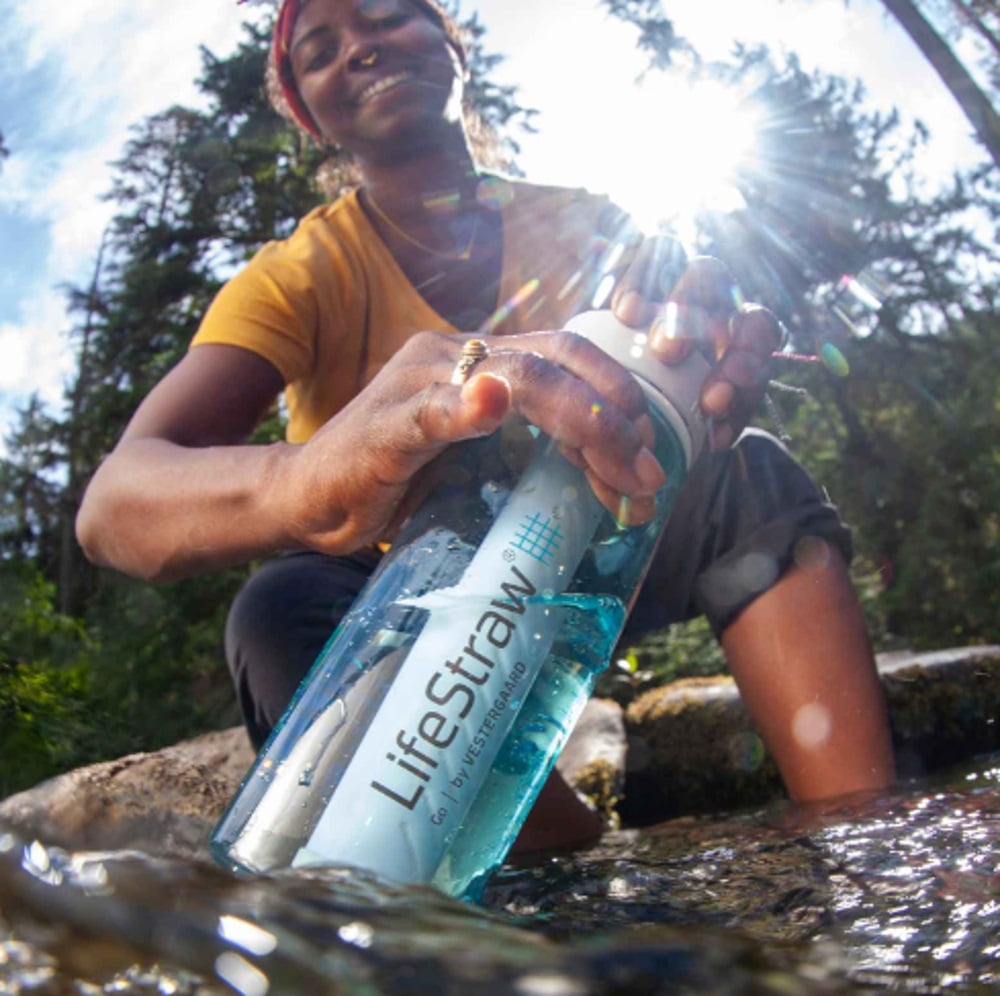 (lifestraw.com)
(lifestraw.com)7. Always have safe drinking water
There are some concerns about water safety with all the load shedding, as if we don’t have enough to worry about already. Water purification for hiking and camping has become much easier and more convenient in recent years, and it is well-suited for home use. Purification tablets and drops, that take only a few minutes to kick in, are R50 to R150 at outdoor shops. LifeStraw bottles are excellent and there is no waiting time, but expect to hand over about R800.
-
AuthorPosts
Viewing 1 post (of 1 total)
- You must be logged in to reply to this topic.
